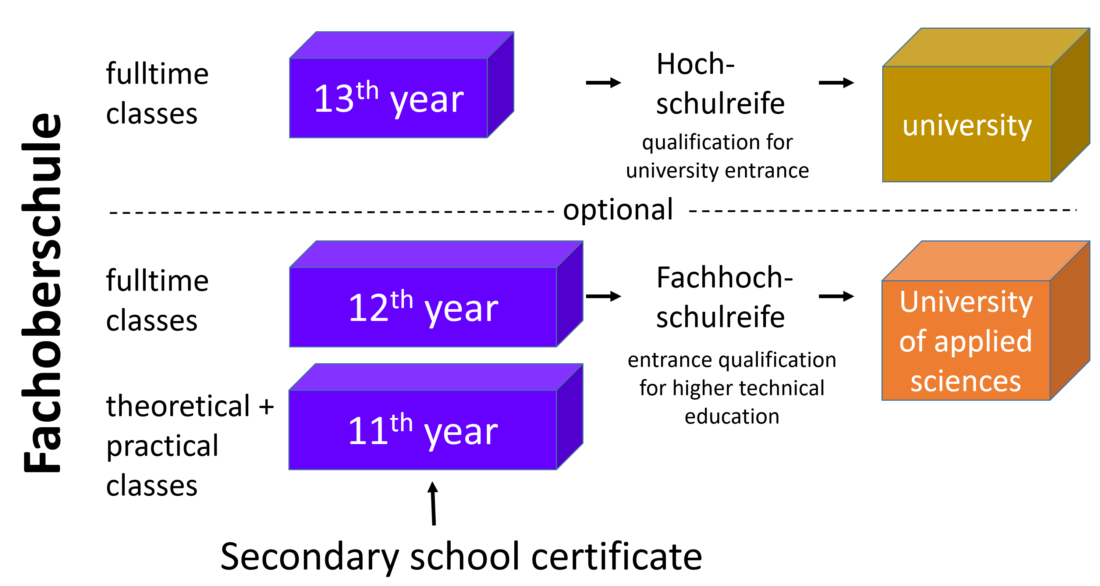Welcome to FOSBOS Memmingen
The Berufliche Oberschule Memmingen is a Vocational Upper School run and financed by the Bavarian government and the city of Memmingen. Currently, about 600 young adult students with different educational backgrounds are enrolled in order to gain their qualifications for university of applied sciences or university. Our institution features two schools, a Technical college (Fachoberschule/FOS) and a Vocational Upper Secondary School (Berufsoberschule/BOS). For more information on the Bavarian school system, see the website of the Bavarian Ministry of Education and the Arts.
Fachoberschule
Requirements
Students need good performances in their secondary school certificate (Mittlere Reife-diploma), which you usually gain after positively graduating from 10th grade of secondary school.
Characteristics
School usually takes between two and three years.
As a unique feature of this type of school the curriculum of grade 11 includes theoretical and practical education. Students do internships in one of our partner companies or institutions at regular intervals.
After successfully passing the final exams in grade 12, students receive the Fachabitur, almost equivalent to the British A-level or the American high-school diploma. Students with a grade of at least 3.0 have the opportunity to attend grade 13 to get the Allgemeine Hochschulreife allowing them to study at all kinds of universities.
Educational directions
Social Studies, Business & Administration, International Business, Technology
Berufsoberschule
Requirements
Besides good grades in their secondary school certificate (Mittlere Reife–diploma), students must have a completed apprenticeship.
Characteristics
School typically takes one or two years.
Students also obtain the Fachabitur after passing 12th grade and they may enroll in grade 13 to gain the Allgemeine Hochschulreife.
Educational directions
Educational directions
Quality of teaching and education
The Bavarian Quality Tableau for Teaching and Education is an initiative by the Free State of Bavaria that aims to assess and improve the quality of education in Bavarian schools.
It offers teachers, schools, educational authorities, and the public information and comparisons regarding the quality of the educational system in Bavaria.
The assessment is based on several criteria which cover numerous aspects of teaching and education, including:
- Quality of Teaching: Elements such as lesson planning, teaching methods, didactics, and the learning environment are considered.
- Student Performance: Student academic performance is evaluated based on exams, tests, and other assessments.
- Teachers: The qualifications, continuing education, and satisfaction of teachers are part of the assessment.
- School Climate: Aspects such as the relationship between teachers and students, conflict management, and social integration are evaluated.
- Facilities and Resources: The availability and quality of teaching materials, technical equipment, and other resources are taken into account.
- School Development: Initiatives and measures aimed at the continuous improvement of the school are included in the assessment.
The results of the Quality Tableau can help schools identify their strengths and weaknesses and take targeted measures for improvement. Parents and students can also use the information to get an idea of the quality of different schools.
Departments and main subjects
Getting in touch
Any questions? Please get in touch


